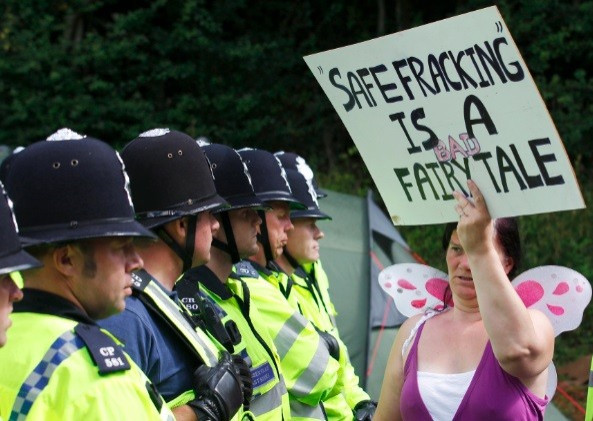UK Shale Gas Fracking Deemed Low Risk to Public Health

The British government's health agency has revealed that the risks to public health from exposure to fracking emissions are low despite general fears surrounding the impact of shale gas extraction.
According to the results of a review by Public Health England (PHE), any health impacts are likely to be minimal, if operations are properly run and regulated.
"The currently available evidence indicates that the potential risks to public health from exposure to emissions associated with the shale gas extraction process are low if operations are properly run and regulated," said John Harrison, director of PHE's centre for radiation, chemical and environmental hazards.
"Good well construction and maintenance is essential to reduce the risks of ground water contamination."
Fracking involved drilling holes deep into the ground and then using high-pressure liquid to fracture shale rocks to release gas trapped inside and environmentalists have criticised the effect the method would have on the surrounding areas.
Shale gas has repeatedly been called a 'game-changer' by the International Energy Agency (IEA) for the energy industry, in the past five years.
Since the US has harvested and established such a glut of supply, this has meant that the country has significantly lowered prices and maintained a more secure energy surplus.
The shale gas industry in the UK could create around 30,000 jobs, not just short-term contracts, but long-term placements that could enable people and communities to develop.
Furthermore, British Geographical Survey confirmed in a report that there is as much as 1.3 trillion cubic feet of shale gas lying under Yorkshire and Lancashire alone.
Related Articles:
Gas War Fears Sum Up Why Labour's Energy Price Pledges Are Plain Wrong
British Public's Hypocrisy Over Anti-Fracking in Shale Gas Sector is Breathtaking
UK Shale Gas Revolution: Environmental Benefits Are Clear
UK Shale Gas: BGS Confirms Vast Reserves Under Lancashire and Yorkshire
© Copyright IBTimes 2025. All rights reserved.






















